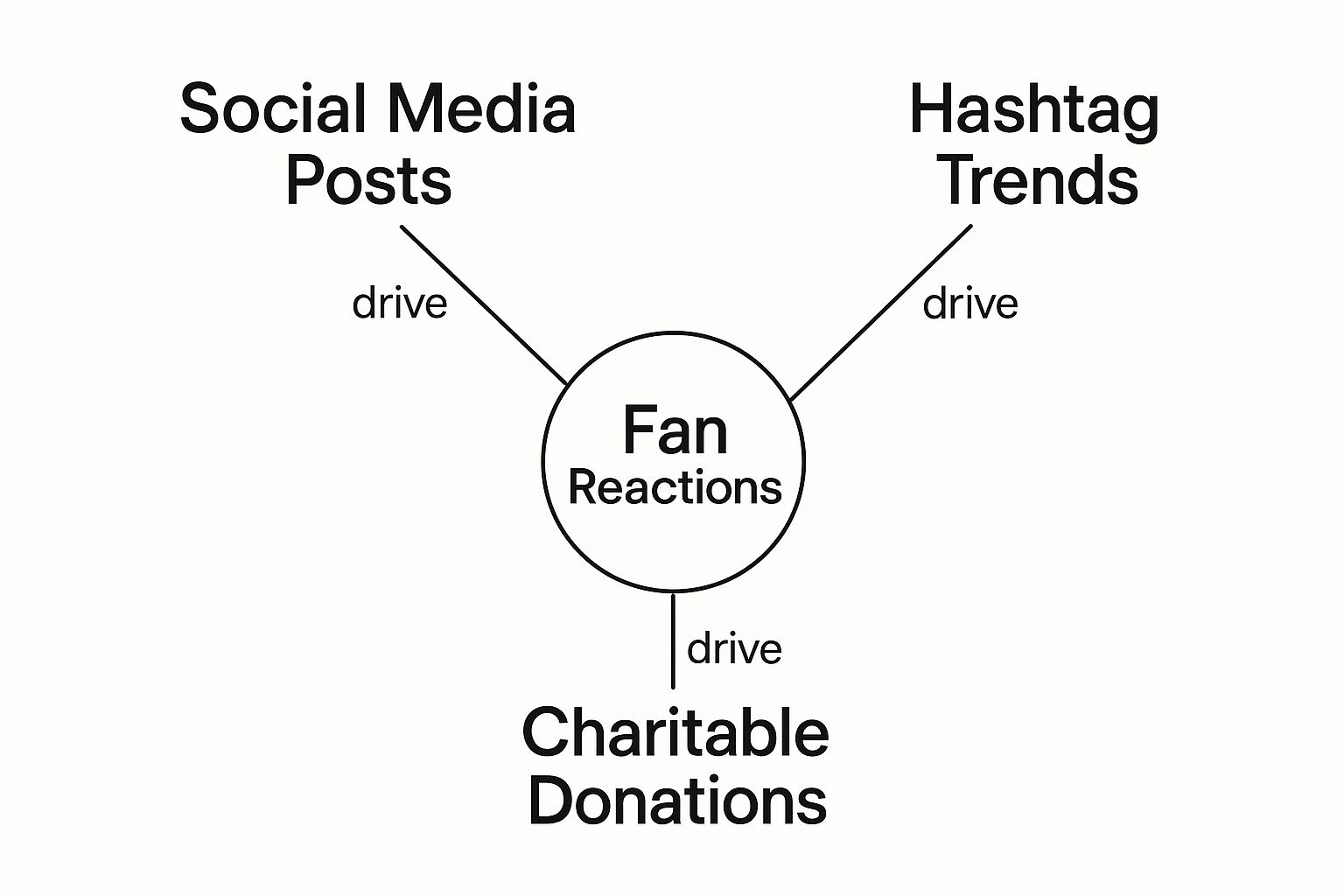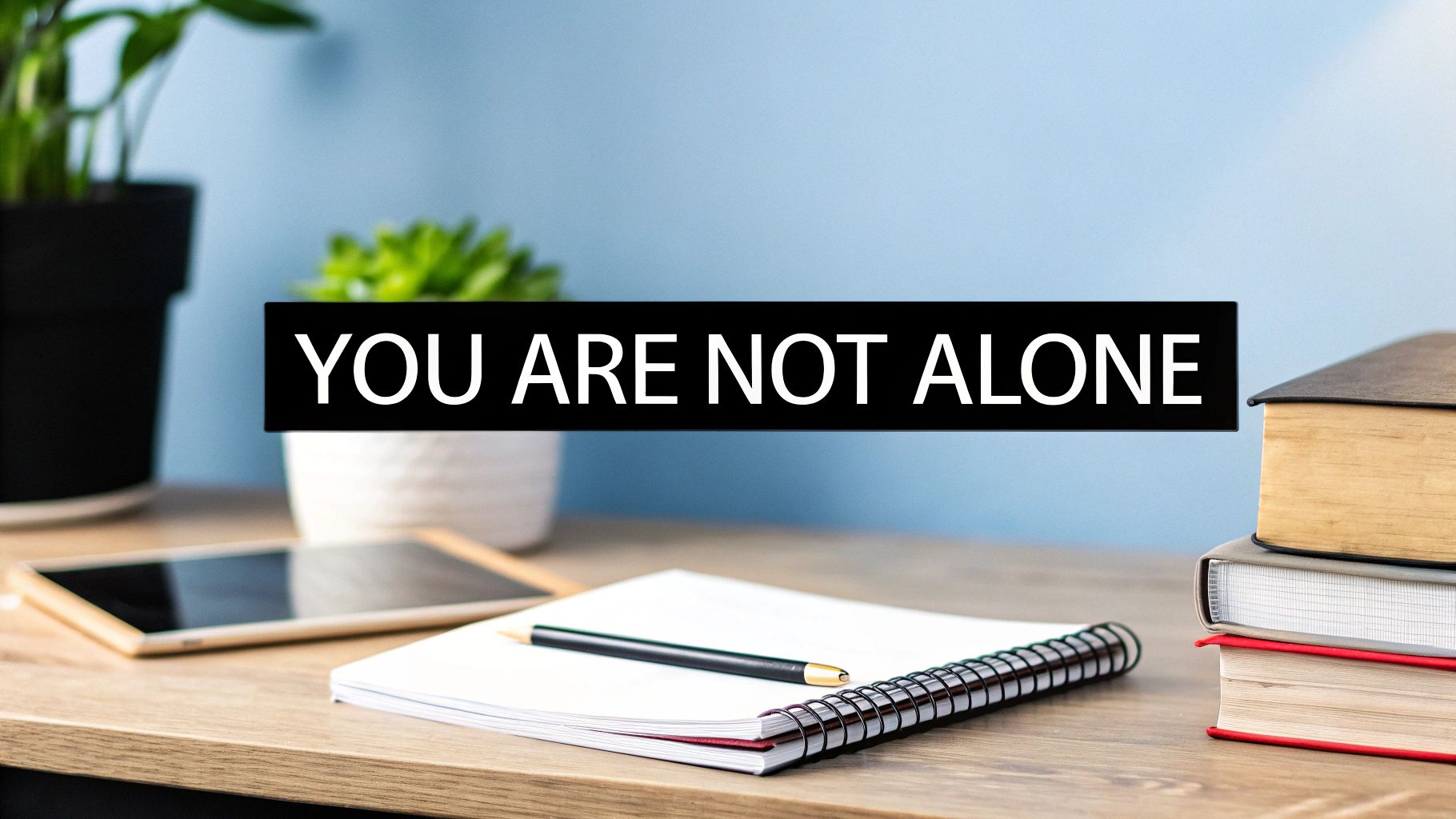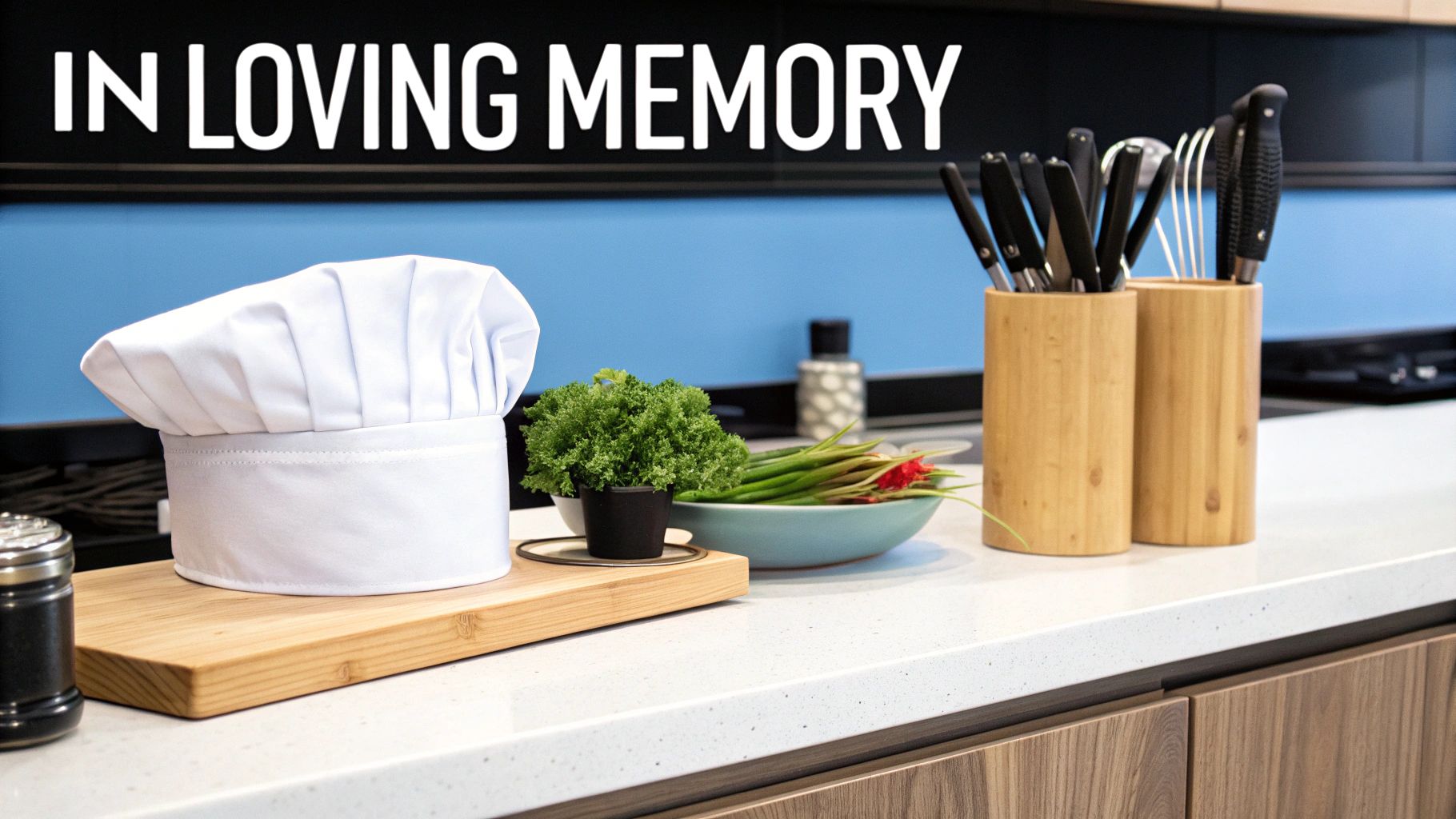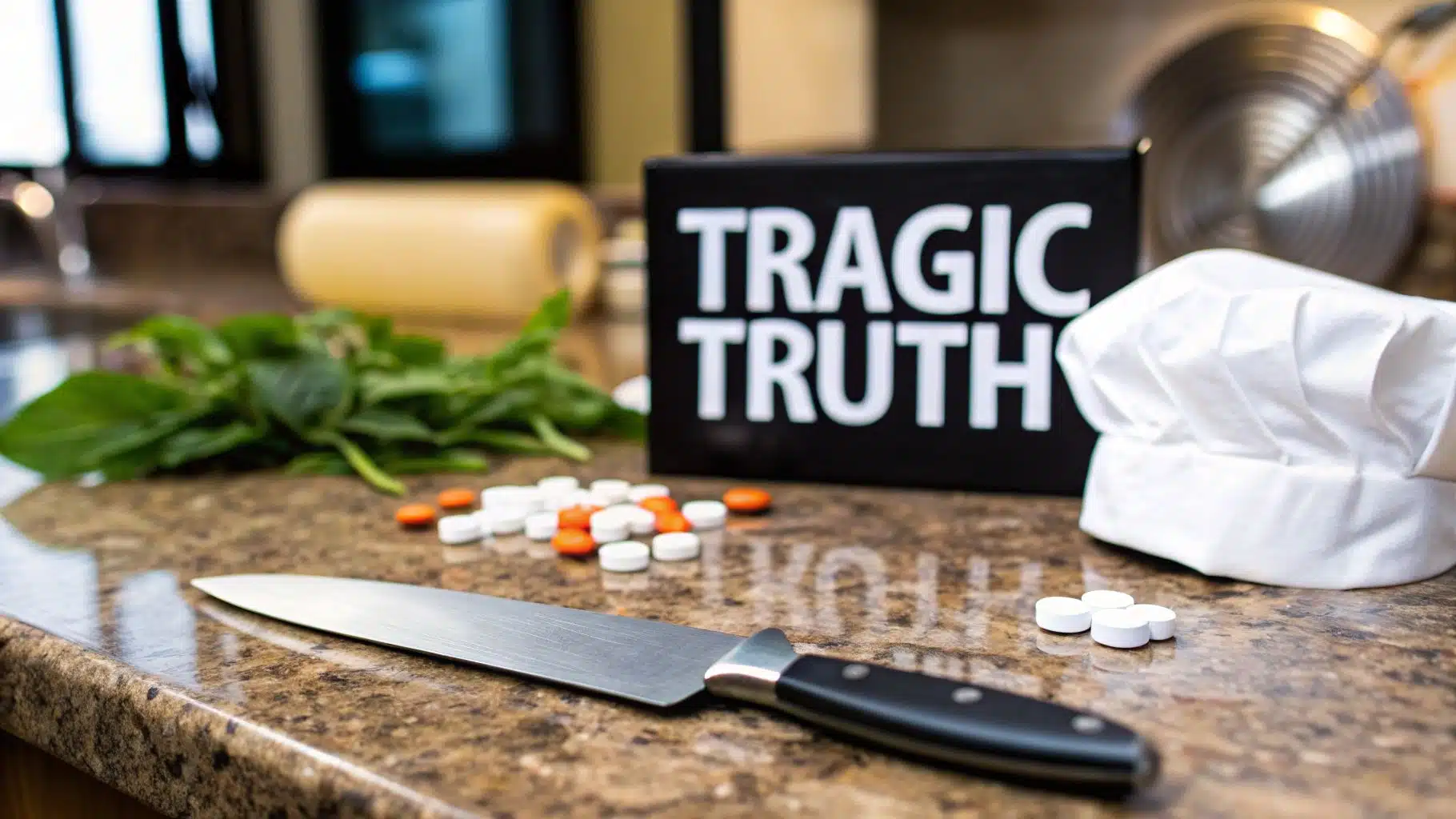
JUST IN: Chef Anne Burrell died by suicide, ABC News has confirmed. It’s been just over five weeks since Burrell was found “unconscious and unresponsive” in her Brooklyn home on June 17, according to police. The culinary world, along with millions of fans, is grappling with the tragic news.
If you are struggling with thoughts of suicide or worried about a friend or loved one, call or text the Suicide & Crisis Lifeline at 988 for free, confidential emotional support 24 hours a day, seven days a week.
The Confirmed Tragic News About Anne Burrell
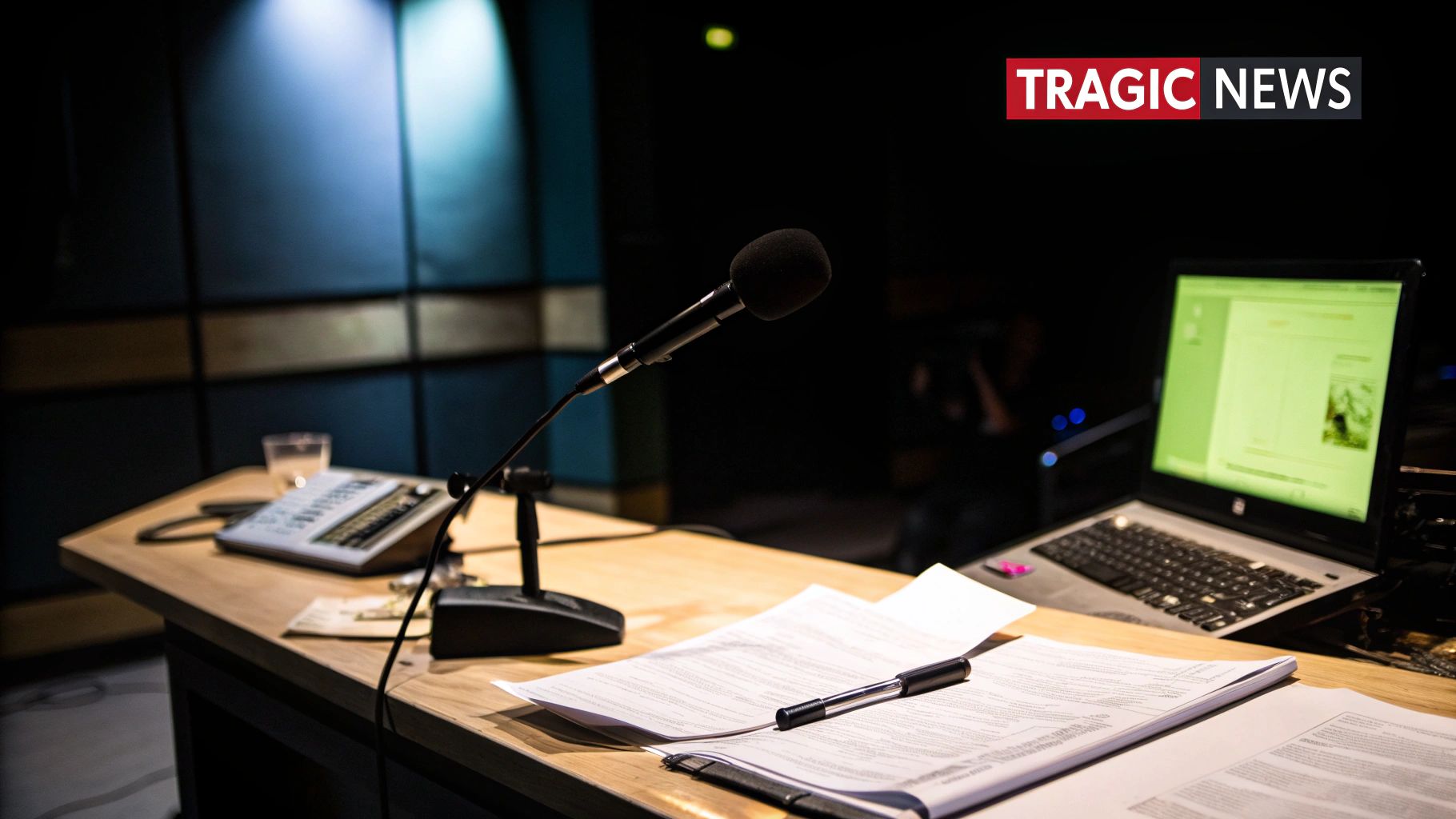
The shockwaves from Anne Burrell’s passing are still being felt. Her death was officially ruled a suicide, caused by the lethal effects of combining several substances. The vibrant 55-year-old chef was discovered in her Brooklyn apartment, and the loss of such a powerful and inspiring personality has left a gaping hole for so many.
Official Cause of Death
Her cause of death was “acute intoxication due to the combined effects of diphenhydramine, ethanol, cetirizine, and amphetamine.” This clinical language points to a heartbreaking reality: a fatal interaction between common over-the-counter medications, alcohol, and a prescription stimulant. You can find a more detailed report on the official findings and community reactions on latimes.com.
To better understand what this means, let’s break down the substances involved. The combination created a toxic overload that her system simply could not handle.
Official Cause of Death Breakdown
The table below summarizes the substances that the medical examiner determined were involved in the acute intoxication that led to her death.
| Substance | Common Name or Use | Substance Type |
|---|---|---|
| Diphenhydramine | Antihistamine (e.g., Benadryl) | Sedative |
| Ethanol | Alcohol | Depressant |
| Cetirizine | Allergy Medication (e.g., Zyrtec) | Antihistamine |
| Amphetamine | Prescription Stimulant (e.g., Adderall) | Stimulant |
As you can see, the mixture of depressants and a stimulant proved to be a fatal combination.
This news rippled through the Food Network community, prompting an outpouring of grief from fellow chefs like Tyler Florence and Giada De Laurentiis, who shared memories of her immense talent and spirit. The final season of Worst Cooks in America, which was set to air just after her passing, now serves as a somber reminder of the incredible talent we’ve lost.
More than anything, this tragedy highlights the silent struggles that so many people face, even those who seem to have it all. It’s a powerful reminder that you never truly know what battles someone is fighting behind the scenes.
If you are struggling with thoughts of suicide or are worried about a friend or loved one, please know there is help available. You can call or text the Suicide & Crisis Lifeline at 988 for free, confidential support, 24 hours a day, seven days a week.
Call Now – Your Journey to Recovery Begins Today!

Take the first step towards a healthier life! Call now to connect with our compassionate team and start your recovery journey today. Your path to healing awaits!
Our recovery specialists are available 24/7 to provide support, and all calls are confidential and free. Reach out anytime – we’re here to help!
Understanding the Dangers of Acute Intoxication
The term “acute intoxication” sounds sterile and clinical, but its reality is brutally personal, something we saw with the tragic loss of Anne Burrell. The chef’s death underscored just how a mix of seemingly unrelated substances can turn deadly. It’s a lot like mixing chemicals in a high school science class; by themselves, they might be stable, but when you combine the wrong ones, you get a volatile, dangerous explosion.
That’s essentially what happens inside the body. The medical examiner’s report pointed to a cocktail of an antihistamine, alcohol, and a prescription stimulant. Each substance pulls the body in a different direction. Alcohol is a depressant, slowing everything down. Amphetamines are stimulants, speeding everything up. The body’s core systems—like heart rate and breathing—get caught in this biological tug-of-war and can simply shut down.
The Science Behind Polysubstance Risk
When you take more than one substance at a time, you can trigger something called a synergistic effect. This is a fancy way of saying the combined effect is far more powerful than you’d expect. It’s not a simple 1+1=2 equation; it’s more like 1+1=10. One substance can dramatically amplify the effects of another, creating an unpredictable and hazardous situation inside your body.
This is especially dangerous when mixing common over-the-counter drugs like diphenhydramine (an antihistamine) with alcohol. Both cause drowsiness and can suppress your breathing on their own. When taken together, that effect is magnified to a life-threatening level. Simply being aware of these interactions is a massive step in preventing similar tragedies. It’s also critical to recognize the signs of alcohol addiction, as alcohol is so often a key ingredient in dangerous polysubstance use.
As the infographic below shows, the news of the chef’s death created a powerful ripple effect online. Fans channeled their shock and grief into social media conversations, trending topics, and even fundraising for important causes.
This visual captures how a personal tragedy can spark a much wider public conversation, fueling awareness and mobilizing support campaigns.
A Wider Public Health Concern
The circumstances surrounding the chef’s death are, unfortunately, not an isolated event. Suicide is a major public health crisis, and acute intoxication from multiple substances is a well-known risk factor.
In the United States, suicide is the 10th leading cause of death, claiming around 48,000 lives in recent years. The combination of prescription drugs like amphetamines with alcohol dramatically increases the risk of both accidental overdose and suicide. Even common antihistamines like diphenhydramine, when mixed with depressants and stimulants, can create a fatal toxicity. These facts highlight a critical need for more awareness around prescription and over-the-counter drug use, especially for anyone already battling mental health challenges.
Remembering a Culinary Icon’s Passion and Legacy
When we hear about a death by suicide, it’s all too easy for the final, tragic moments to overshadow a lifetime of achievement. But with someone like Anne Burrell, reducing her life to the coroner’s report—an acute overdose—would be a profound disservice. Her legacy is one of culinary fire, an infectious and boisterous energy, and a genuine love for food that she poured into everything she did.
Anne’s story didn’t start in a television studio. It began in the kitchen, where she was captivated by watching her mother and the legendary Julia Child. This wasn’t just a hobby; it was a calling. That early spark led her to the prestigious Culinary Institute of America, where she didn’t just learn to cook—she set out to master her craft so she could share it with the world.
From Sous Chef to Superstar
Before the signature spiky blonde hair and that unmistakable laugh became famous, Anne Burrell was paying her dues behind the scenes. She cut her teeth as a sous chef on Iron Chef America, where her talent and larger-than-life personality were simply too bright to go unnoticed. That role became her launchpad. Soon, she had her own show, Secrets of a Restaurant Chef, which cemented her place as a Food Network star.
“Her family said it best: Burrell’s “light radiated far beyond those she knew, touching millions across the world.” This captures her essence perfectly. Her impact was never just about recipes; it was about connection.”
She was a familiar face on shows like Chopped and Food Network Star, but for many, she’ll always be the tough-love mentor on Worst Cooks in America. For season after season, she guided culinarily hopeless contestants with a firm but caring hand, transforming kitchen disasters into confident home cooks.
More Than a Chef
What made Anne Burrell so beloved was her authenticity. She was unapologetically herself—loud, hilarious, and fiercely passionate about her work. She had a gift for demystifying complex techniques, making anyone watching feel like they, too, could create something incredible. Her vibrant spirit was on full display even the night before she died, when she was on stage at an improv comedy show, a testament to her love for life and making people laugh.
While the news confirmed her death was due to acute intoxication from a fatal mix of substances, including a high concentration of ethanol, her life was defined by so much more. It’s critical to understand the risks involved, and you can learn more by reading about the signs of alcohol poisoning. Her story is a painful reminder that even the brightest public smiles can hide private struggles. Her legacy, however, remains one of warmth, incredible talent, and boundless energy.
If you are struggling with thoughts of suicide or are worried about a friend or loved one, please know that help is available right now. You can call or text the Suicide & Crisis Lifeline at 988 for free, confidential support, 24 hours a day, seven days a week.
How to Recognize the Warning Signs of a Crisis
When a tragedy like Chef Anne Burrell’s death by suicide happens, friends and family are often left wondering if they missed any signs. It’s a heavy question. And while none of us can read minds, learning to recognize the warning signs of a mental health crisis or suicidal thoughts can give you the confidence to step in when it matters most.
These signs aren’t always loud or dramatic. Sometimes, they’re subtle shifts in behavior, quiet comments that seem out of place, or a feeling that something is just off.
The real key is to notice a change from a person’s baseline—their usual self. Someone in crisis might not show every sign on a checklist, but even one or two can be a powerful reason to reach out and ask, “Are you okay?” These indicators generally fall into three buckets: what they do, what they say, and what they feel.
Behavioral Red Flags
Often, the most concrete clues are the ones you can see. Think of these as a sudden, unexplained break in someone’s daily rhythm or habits.
- Increased Substance Use: A noticeable jump in drinking or drug use is a major red flag. Using substances to numb pain or escape reality can signal deep distress.
- Withdrawal and Isolation: The person might suddenly pull away from friends, family, and social events they used to love. Texts go unanswered, and calls go to voicemail. They’re building a wall.
- Reckless Behavior: This can look like dangerous driving, engaging in unsafe sex, or just a general carelessness about their own safety. It’s a physical manifestation of feeling like their life doesn’t matter.
- Giving Away Possessions: When someone starts giving away cherished items for no apparent reason, it can feel like they’re putting their affairs in order.
- Changes in Sleep Patterns: Drastic shifts, like sleeping all day or barely sleeping at all, are classic signs of significant emotional turmoil.
These actions are often intertwined with substance use, which is why knowing how to help someone with addiction is such a critical piece of the puzzle. Addiction can fuel a mental health crisis, or it can be a symptom of one.
Verbal and Emotional Cues
What a person says—and just as importantly, what they don’t say—can be incredibly revealing. You have to listen for the meaning behind the words, for expressions that sound out of character or convey a profound sense of pain.
“Someone in crisis might not come out and say, “I am suicidal.” Instead, they might talk about feeling trapped, being a burden to others, or having no reason to keep going. These phrases are cries for help, even if they’re disguised.”
Pay close attention to any talk about:
- Hopelessness: Statements like “things will never get better” or “there’s just no way out.”
- Unbearable Pain: Describing an emotional or physical pain that feels endless and impossible to endure.
- Being a Burden: Expressing that they feel like they are a weight on the people who care about them.
- Intense Mood Swings: Abrupt and extreme emotional shifts, moving from deep sadness to intense rage or irritability without warning.
Spotting these signs is the first, crucial step. The next is knowing what to do with that knowledge.
Where to Find Help and How to Offer Support
It’s one thing to recognize the warning signs of a crisis, but it’s another thing entirely to know what to do next. Taking action is what truly saves lives. The tragic news about Food Network chef Anne Burrell has put a much-needed spotlight on this critical issue, and it leaves many of us asking the same question: what do I do if I’m worried about someone?
If you’re concerned about yourself or someone you love, the situation can feel paralyzing. But here’s the most important thing to remember: you don’t have to be a trained expert to help. You just have to be willing to start a conversation.
Approaching someone who is clearly in distress requires genuine empathy and a non-judgmental heart. Your job isn’t to fix their problems. Think of yourself as a bridge to professional help. You can open the door with simple, honest questions like, “I’ve noticed you haven’t seemed yourself lately. How are you really doing?” or “I’m worried about you. Is there anything you want to talk about?”
That simple act of showing you care can be incredibly powerful. It shatters the sense of isolation that so often comes with a mental health crisis and lets the person know they aren’t facing this alone.
The 988 Lifeline: A Direct Connection to Help
One of the most valuable tools available right now is the 988 Suicide & Crisis Lifeline. This isn’t just a phone number; it’s a direct connection to a nationwide network of trained crisis counselors who are ready to provide immediate, life-saving support.
“The 988 Lifeline is free, confidential, and available 24/7. You can call or text 988 from anywhere in the United States to be connected with a counselor who will listen, offer support, and link you to resources.”
Just knowing this number exists is empowering. It means that no matter what time it is, day or night, there is always a safe place to turn. For those struggling with substance use alongside their mental health, understanding the first steps to recovery can also offer a clear, structured path forward.
What to Do in an Emergency
If you believe someone is in immediate danger of harming themselves, it’s crucial to act swiftly. This is a medical emergency. Your only goal is to keep them safe until professional help can take over.
- Do Not Leave the Person Alone: Your presence is a powerful deterrent and a source of comfort. Stay with them or make sure they are in a safe place with someone else until help arrives.
- Remove Any Means of Self-Harm: If you can do so safely, remove any firearms, sharp objects, or medications that could be used in an attempt.
- Call 911 or the 988 Lifeline: In an immediate, life-threatening crisis, call 911. You can also call or text 988 to get guidance from a trained professional on how to handle the situation while you wait for emergency services.
Remember, your role is to be the vital link that connects them to safety, not to solve the crisis on your own. By knowing these steps, you are fully prepared to be part of the chain of survival for someone you love.
Common Questions About This Story and Suicide Prevention
When a public figure dies tragically, it’s natural to have a lot of questions. The news that Food Network chef Anne Burrell died by suicide, caused by acute intoxication, is both jarring and confusing. Let’s walk through some of the common questions that come up in these situations to clear up the facts and provide some helpful context.
The initial confirmation came swiftly from ABC News and the medical examiner. Chef Anne Burrell was found “unconscious and unresponsive” in her Brooklyn home on June 17, and her death was officially ruled a suicide just over five weeks later. The cause was listed as “acute intoxication due to the combined effects of diphenhydramine, ethanol, cetirizine, and amphetamine.”
That clinical language really highlights the unpredictable danger of mixing substances. It wasn’t a single overdose but a complex, fatal reaction between multiple drugs.
Was This Suicide Connected to a Known Mental Health Struggle?
This is often the first question people ask. While Anne Burrell’s family hasn’t spoken about a specific, diagnosed mental illness, suicide is almost always tied to deep emotional pain and an underlying mental health condition, whether it’s been diagnosed or not.
Celebrities aren’t shielded from these struggles. In fact, the intense pressure of being in the public eye can make things even harder. Her death is a tough reminder that a vibrant, successful exterior can easily mask profound internal battles. The link between substance use and mental health is a huge factor in the wider crisis of addiction in America, a pattern we see far too often.
While we can’t know exactly what she was going through, we do know that acute intoxication is often a symptom of a much larger struggle.
“If you are struggling with thoughts of suicide or worried about a friend or loved one, call or text the Suicide & Crisis Lifeline at 988 for free, confidential emotional support 24 hours a day, seven days a week.”
How Can I Support Someone Without Making Things Worse?
This is the fear that holds so many of us back. But you don’t need to have all the answers. The most important thing is to approach the conversation with compassion, not judgment. Your job isn’t to fix them; it’s to listen and show you care.
Here are a few ways to start that supportive conversation:
- Be Direct but Gentle: Frame your concerns using “I” statements. Saying, “I’ve been worried about you lately,” lands much more softly than, “You seem depressed.”
- Listen Without Judgment: Just let them talk. Resist the urge to jump in with quick fixes or tell them to “just cheer up.” Create a safe space for them to share as much or as little as they want.
- Offer Practical Help: Sometimes the little things are overwhelming. Ask if you can help with a specific task, like scheduling an appointment, giving them a ride, or even just sitting with them so they’re not alone.
- Encourage Professional Help: Gently suggest they talk to a doctor, a therapist, or a helpline like 988. You can even offer to sit with them while they make the call.
Remember, just showing you care can be an incredibly powerful lifeline. Your support might be the very bridge that connects someone to the professional help they desperately need. This tragedy underscores that you never truly know what battles someone is fighting, making kindness and awareness more important than ever.
If you or a loved one is struggling with alcohol or drug addiction, you are not alone. Addiction Helpline America connects you with trusted recovery professionals who provide compassionate support and guidance. With our expertise in addiction treatment, we’re here to help you take the first step towards a healthier, drug-free life. Visit us at https://addictionhelplineamerica.com.
Our helpline is 100%
free & confidential
If you or someone you care about is struggling with drug or alcohol addiction, we can help you explore your recovery options. Don’t face this challenge alone—seek support from us.
Programs
Resources
Will my insurance
cover addiction
treatment?
We're ready to help
Find the best
drug or alcohol treatment
center
Are you or a loved one struggling with addiction? Call today to speak to a treatment expert.




